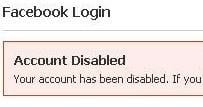
POST-OP. Dominic Scaia's most recent Facebook profile picture, shortly before he was banned on Dec 20. Credit: courtesy of Dominic Scaia
UPDATE – Jan 15, 9:45pm: Facebook has re-evaluated its decision to censor a Calgary trans man’s post-op chest pics. A spokesperson told Xtra late Friday that Dominic Scaia is free to reupload the pictures, citing the importance of raising awareness about trans issues. Read the full update here.
UPDATE – Jan 14, 3:08pm: Dominic Scaia just tweeted to say that Facebook has reactivated his account. “They’ve reinstated my account, but they maintain that the photos were against the TOS [terms of service].” Scaia adds that Facebook “won’t let me re-upload the photos, or I’ll get in trouble again.”
Scaia sent Xtra the email he received from Facebook. Here it is:
“Photo content that you uploaded has been removed for violating Facebook’s Statement of Rights and Responsibilities. Photos containing nudity or other graphic or sexually suggestive content are not allowed. Unfortunately, for technical reasons, we are unable to provide further information about the removed content.
However, after reviewing your situation, we have reactivated your account, and you should now be able to log in. In order to prevent this from happening in the future, please refrain from posting photos of this kind and remove any that still exist on the site. For more information on conduct prohibited by Facebook, please read our Statement of Rights and Responsibilities, which can be accessed by clicking on the “Terms” link at the bottom of any Facebook page.”
Shortly after Scaia’s account was reinstated, Xtra also received this response from a Facebook spokesperson:
“Photos containing nudity violate the policies listed in our Statement of Rights and Responsibilities, and we remove these photos – and may disable the account of the person posting them – when they’re reported to us by our users. Our policies are designed to ensure Facebook remains a safe, secure and trusted environment for all users, including the many children (over the age of 13) who use the site. Users can always write to our appeals queue (using the contact form in the “Warnings” section of our Help Center) if they feel they’ve been treated unjustly. Our team will then investigate and reinstate the account if appropriate.”
It’s a partial victory for Scaia — but Facebook’s strict content policies remain unchanged.
***
A female-to-male (FTM) transsexual was banned from Facebook Dec 20 after posting photos of his chest post-operation to his profile.
ACCOUNT DISABLED. When Dominic Scaia tries to log in to Facebook, a message appears: “Your account has been disabled.” (courtesy of Dominic Scaia)
On Nov 25, Calgarian Dominic Scaia had surgery to remove his breasts as part of his transition process from female to male.
“I was so proud of my new chest, and I wanted to show it off,” he says. “Plus, a lot of people had encouraged me to do so.”
As an activist, Scaia uses sites like Facebook and YouTube to create awareness about transgender issues and to help others who are transitioning from female to male.
After his surgery, Scaia documented his recovery by posting photos of his front torso to Facebook (most of the photos included his face). He selected one of the photos as his profile picture.
On Dec 20, just hours after having changed his profile picture, Scaia tried to log onto his Facebook account, but it was disabled.
“I was pretty upset,” he says.
Scaia immediately sent Facebook an email asking why his account had been disabled, but no one responded. On Dec 29, Scaia sent Facebook another unanswered message. It’s been more than three weeks since Scaia’s account was disabled without warning or explanation.
Facebook did not respond to Xtra’s request for an interview by time of publication. Scaia says he can think of no other reason why he could have been banned.
On Jan 13, someone came forward to Vue Weekly reporter Tam Gorzalka, claiming to have reported Scaia’s post-op chest pic to Facebook moderators.
“Report This Photo” appears beside every photo on Facebook, and users are encouraged to monitor their friends. According to Facebook’s Help Centre, the company reviews all items reported by its users.
Section 3.7 of Facebook’s Statement of Rights and Responsibilities reads, “You will not post content that is hateful, threatening, pornographic, or that contains nudity or graphic or gratuitous violence.”
In many cases, Facebook will remove photos deemed in violation of its terms of use and issue a warning. But in Scaia’s case, his account was disabled without notification.
Scaia, who’s been using Facebook for three years, says he’s been careful to adhere closely to the social-networking site’s terms of use.
“Since it’s a male chest, I didn’t see a problem with it,” says Scaia, noting that biological males are allowed to post photos of their bare chests on Facebook. Scaia identified as male on his Facebook profile.
“I’m a man, and I posted my chest online, and that should be allowed — period. There are thousands of transgendered people on Facebook, and I think the message this sends to them is your photos aren’t safe, and that’s not fair,” he says.
On Jan 6, Scaia’s friends created a Facebook group, “Stop Transphobia on Facebook – Un-Ban Dominic Scaia.” In just over a week, more than 5,000 people have joined the group, which is calling for Scaia’s account to be reactivated. The group is also calling for a public and private apology to Scaia, and a more trans-friendly Facebook policy. Some members of the group have threatened to boycott Facebook if Scaia’s account isn’t reactivated, and many supporters have sent messages to Facebook, demanding to know why Scaia’s account has been disabled.
“This isn’t just about a Facebook account,” says Scaia. “This is a discrimination issue, and it doesn’t just affect me; it affects all trans men, because if this happened to me, it can happen to them too. All it takes is someone reporting a photo.”
Scaia says he is grateful for the support he’s received and hopes it sends a strong message to Facebook administrators, forcing them to reactivate his account.
In May 2009, Facebook was forced to lift a ban on photos of a breast-cancer victim’s chest after she’d had a mastectomy. UK resident Sharon Adams had posted the photos of her mastectomy scars to raise awareness about breast cancer, but Facebook removed them, saying they were “sexual and abusive.” After nearly 900 people joined a group calling on Facebook to reverse its decision, Facebook admitted it had made a mistake and apologized.
Inspired by this case, Scaia recently got in touch with Adams to ask for advice. Adams has since joined Scaia’s Facebook group and is helping draw attention to this issue.
“To be honest, I didn’t think it would go this far,” says Scaia. “I am overwhelmed and amazed by the huge response to this, but it’s great that I have so many people on my side. This is helping raise awareness, and hopefully will cause Facebook to be more sensitive to trans issues and think twice next time before deleting post-op top surgery photos, or banning people for posting them. And I’m hoping it will also cause them to be a little more careful about how they go about banning someone.”
In the meantime, Scaia says he is lost without his Facebook account.
“I never logged out,” he says, adding that it was his primary mode of communication with family and friends.
If Scaia is banned forever, he will lose access to three years worth of photos, notes, messages and more than 300 contacts, many of whom he can’t get in touch with outside of Facebook.
“You don’t really realize until your Facebook is gone just how important it is,” says Scaia.
Join the Facebook group Stop Transphobia on Facebook – Un-Ban Dominic Scaia
Watch Scaia talk about the Facebook censorship:

 Why you can trust Xtra
Why you can trust Xtra


